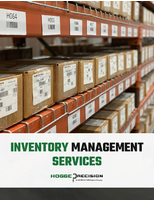IPC Comments on Proposed export control changes.
Share:
Press Release Summary:
On December 22, 2011, IPC filed comments with U.S. Department of State's Directorate of Defense Trade Controls (DDTC) urging protection of U.S. defense equipment security by ensuring export control protection of design information for PCBs for defense equipment. One recommendation is that DDTC make clear that International Traffic in Arms Regulations apply to any PCB designs for defense items on U.S. Munitions List. Several examples of critical importance of PCB design were given.
Original Press Release:
IPC Comments on Proposed State Department Changes to Export Control
BANNOCKBURN, Ill., USA - IPC has filed comments with the U.S. Department of State's Directorate of Defense Trade Controls (DDTC) urging them to protect the security of U.S. defense equipment by ensuring export control protection of design information for printed circuit boards for defense equipment. IPC strongly recommended that DDTC make clear that International Traffic in Arms Regulations (ITAR) apply to any printed board designs for defense items on the United States Munitions List (USML).
The comments, filed on December 22, 2011, were provided in response to proposed changes to United States export control regulations. IPC commented on the proposed revision of the USML's Category VIII (aircraft) as detailed by the Department of State's Federal Register notice. Category VIII is the first of the 19 categories in the USML for which the DDTC is expected to propose revisions.
According to IPC Vice President of Industry Programs Tony Hilvers, "While these regulations might seem arcane and esoteric, the proper and unambiguous protection of printed board designs is critical to preserving the safety and integrity of equipment relied upon by the U.S. war fighter."
IPC offered several examples of the critical importance of printed circuit design in its comments: "Printed circuit boards and their designs hold valuable and specific information about the workings of the underlying defense articles themselves. As examples, printed board designs can convey the following types of information: how sensitive an aircraft or its counter measure dispensing systems are to electronic disruption; the frequency range and range of operation for flight communications equipment; and design information for integrated avionics and vehicle management systems that may allow for reverse engineering of the technology."
IPC and its members intend to respond to each of the 19 relevant category revisions expected to be proposed by DDTC within the year.
IPC has a long history of cooperation with and support of the U.S. Department of Defense. IPC has been a leader in addressing issues of concern to the agency in the areas of standards development, counterfeit parts, intellectual property protection and the direction of technology.
Recently, IPC and its members developed IPC-1071, Best Industry Practices for Intellectual Property Protection in Printed Board Manufacturing. This standard is used by printed board manufacturers to better protect the intellectual property embedded in printed boards manufactured for commercial, industrial, military and other high- reliability markets.
To read IPC's comments (.pdf), visit www.ipc.org/comments-USML-cat-VIII. For more information on IPC initiatives in the area of U.S. export controls, go to http://www.ipc.org/Export-Controls.
About IPC
IPC (www.IPC.org) is a global trade association based in Bannockburn, Ill., dedicated to the competitive excellence and financial success of its 3,100 member companies which represent all facets of the electronics industry, including design, printed board manufacturing, electronics assembly and test. As a member-driven organization and leading source for industry standards, training, market research and public policy advocacy, IPC supports programs to meet the needs of an estimated $2.02 trillion global electronics industry. IPC maintains additional offices in Taos, N.M.; Arlington, Va.; Stockholm, Sweden; Moscow, Russia; Bangalore, India; and Shanghai, Shenzhen and Beijing, China.




